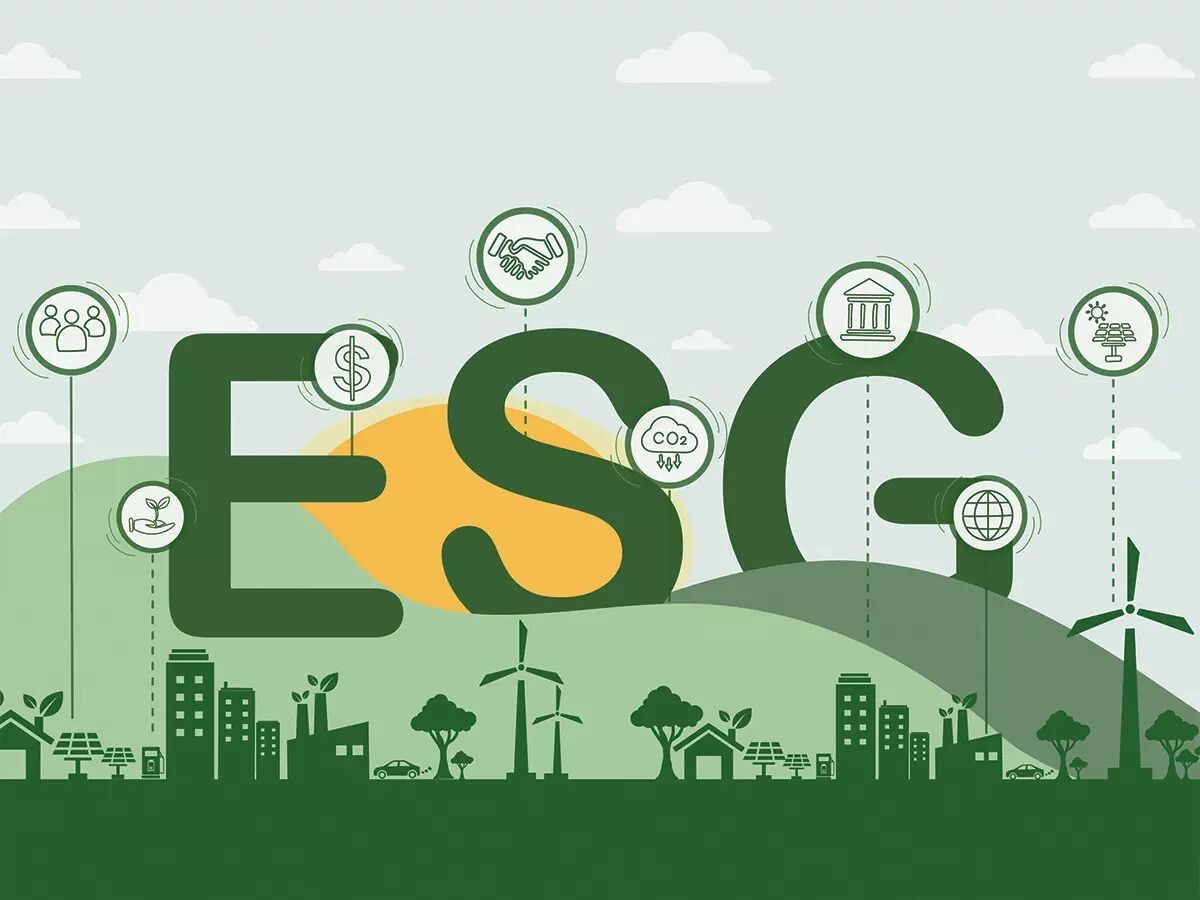A Comprehensive ESG Guide: Compliance Pros' Vital Role in Business
This comprehensive guide navigates the dynamic landscape of Environmental, Social, and Governance (ESG) considerations, emphasizing the vital role compliance professionals play in today's global business arena.
In recent years, Environmental, Social, and Governance (ESG) considerations have evolved into a central focus for global businesses. This comprehensive guide explores the core principles of ESG reporting, its rapid growth, and the crucial role compliance professionals play in today's business landscape.
Understanding ESG Fundamentals:
ESG, representing Environmental, Social, and Governance principles, forms the foundation for sustainable business practices. The guide underscores the meticulous examination of its three pillars: Environmental, scrutinizing ecological footprints; Social, evaluating societal impact; and Governance, focusing on internal decision-making. Together, these pillars create a holistic framework, measuring ethical commitments and guiding long-term success.
Evolution of ESG:
Originating as a niche concept, ESG gained prominence due to global events, regulatory shifts, and increased sustainability awareness. The financial crisis of 2008 exposed traditional risk management flaws, leading to a transformative integration of ESG principles into corporate DNA. Today, ESG is a fundamental benchmark for responsible business conduct, transcending its trend status.
Global Adoption:
Businesses globally are shifting towards ESG standards, recognizing the importance of responsible practices. Beyond a compliance checklist, ESG becomes a strategic imperative for long-term viability. Industries, led by finance, are incorporating ESG criteria into risk assessments. Companies in manufacturing and technology are recalibrating supply chains, emphasizing energy efficiency, waste reduction, and social responsibility initiatives.
The Growing Importance of ESG: A Triad Shaping the Future of Business
ESG considerations have transcended boardrooms, becoming a decisive factor globally, driven by investor dynamics, evolving consumer preferences, and regulatory changes.
Investor Influence: The Rise of Conscious Investing
ESG's integration into corporate strategy is fueled by a shift in the investment landscape. Investors, from institutional giants to individuals, increasingly consider ESG criteria. Institutional investors lead, recognizing ESG factors as indicators of resilience, long-term viability, and adaptability to global challenges.
Consumer Preferences: The Driving Force Behind Change
Modern consumers prioritize products aligning with values, compelling businesses to integrate sustainable practices. Companies across industries, from fashion to technology, are adapting. Ignoring these trends risks reputational damage and market share loss.
Regulatory Landscape: Navigating the ESG Compliance Maze
Regulatory changes globally recognize ESG's imperative. Governments enforce transparency and accountability in ESG matters. In India, SEBI leads with the BRSR, a pioneering ESG reporting format. Regulatory shifts create a level playing field, compelling businesses to adhere to standardized ESG metrics.
Navigating Sustainability: A Step-by-Step Guide for Compliance Professionals
For Compliance Professionals, embracing ESG is not just a choice but a strategic imperative. The guide outlines a 10-step practical approach, emphasizing collaboration, stakeholder engagement, and technology for streamlined ESG reporting. It underscores the transformative potential ESG holds in navigating the evolving landscape of corporate governance.
In the dynamic landscape of the 21st-century corporation, embracing ESG is not merely a choice; it's an imperative. The inherent risks of overlooking Environmental, Social, and Governance factors are escalating daily, while, in contrast, the business opportunities stemming from a wholehearted commitment to ESG align with the growing preferences of both customers and investors. In today's corporate realm, ESG is not just a nice-to-do but a must-to-do for sustained success and relevance.
-Jangoo Dalal (GCB.D) Co-Founder & CEO, GovEVA
Here's a practical guide on how to get started in 10 steps:
1. Assess Compliance Frameworks:
- Evaluate frameworks for seamless ESG integration.
2. Materiality Assessment:
- Prioritise relevant ESG issues with a Materiality Assessment.
3. Cross-Department Collaboration:
- Engage with sustainability, risk management, and operations.
4. Create BRSR:
- Initiate a comprehensive Business Responsibility and Sustainability Report.
5. Establish ESG KPIs:
- Define measurable goals for tracking environmental, social, and governance aspects.
6. Implement ESG Training:
- Institute programs to foster a culture of responsibility.
7. Stakeholder Engagement:
- Connect with investors, customers, and communities.
8. Tech for ESG Reporting:
- Leverage technology for efficient data collection and reporting.
9. Stay Informed on ESG Regulations:
- Regularly update knowledge on international sustainability standards.
10. Continuous Improvement:
- Institute mechanisms for ongoing improvement in sustainability initiatives.
Benefits and Challenges of ESG:
Embracing ESG principles is a strategic move redefining the trajectory of businesses. Companies encounter benefits such as enhanced reputation, access to capital, and improved long-term performance. Challenges include lack of standardization, resistance to change, balancing short-term costs, data collection difficulties, and integrating ESG into corporate culture.
Challenges and Solutions in Implementing ESG Initiatives:
Overcoming challenges requires adopting recognized reporting frameworks, effective communication to address internal resistance, balancing short-term costs with phased approaches, leveraging technology for data management, and embedding ESG into corporate culture through leadership commitment.
Conclusion:
In conclusion, the ESG landscape offers tangible benefits while requiring strategic navigation of challenges. Businesses embracing this journey position themselves as responsible corporate citizens, future-proofing their success in an era where sustainability is paramount. The ESG wave is not just a trend; it's a powerful force shaping the future of responsible business conduct.




